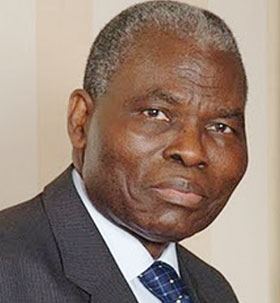Flooding cuts Oil production by 500,000 barrels per day
Nigeria has lost at least a fifth of its oil output in recent weeks due to severe flooding and oil theft, government oil officials said on Wednesday, in comments that helped push oil prices higher.
Nigeria’s oil is exported to the United States, Asia and Europe and the current disruptions estimated at 500,000 barrels per day could amount to as much as 0.5 percent of global supply.
Nigeria lost around 500,000 barrels per day (bpd) of oil production due to severe flooding in recent weeks, an industry regulator told Reuters.
“Around 500,000 bpd was shut down for a two to three week period but things are back to normal now,” a spokesman for the Department of Petroleum Resources said by phone.
Another official, the head of the Nigerian National Petroleum Corp. (NNPC) said Nigeria’s output, including crude and condensate, fell to around 2.1-2.2 million bpd last week, from an average of 2.5 million bpd this year.
There was little evidence On Wednesday that production was back to normal after one of Nigeria’s biggest operators, Royal Dutch Shell said on Tuesday its Nigerian venture had declared force majeure on exports of Bonny and Forcados crudes.
The force majeure was declared on Friday as Shell cited damage caused by thieves and flooding affecting a third-party supplier it did not identify.
Bonny Light and Forcados streams are two of Nigeria’s most important oil grades and in October accounted for 427,000 bpd, about a fifth of Nigeria’s total exports of 2.048 million bpd.
Separately, French oil company Total on Tuesday told Reuters it had stopped oil and gas production from its onshore OML 58 block due to flooding. The block, in which Total has a 40 percent stake, normally produces the equivalent of 90,000 bpd of oil.
Total spokeswoman Anastasia Zhivulina told Reuters in an email on Tuesday that gas output lost at OML 58 had been “partially compensated by other fields, located offshore.”
Industry experts believe data from the Nigerian central bank and from export shipping programmes provided by oil traders show that NNPC’s output figures are often optimistic.
Africa’s biggest oil producer has experienced its worst flooding in five decades this year. The River Niger, Africa’s third longest, burst its banks last month, submerging stretches of the swampy oil-rich region.
On Sept. 30, Shell said its Nigerian unit closed the Bonny pipeline which sends crude to the Bonny terminal and stopped 150,000 bpd of production after oil thieves caused a fire.
Brent prices edged higher on Wednesday with market participants saying news from Nigeria was partly responsible for this.
“This could certainly be producing a little bit of buying interest in the spreads and therefore forcing backwardation a little wider,” said Tony Machacek from Bache, referring to front month Brent prices outpacing gains in other months due to expectations of an imminent tightness in supply.
Source: Reuters









